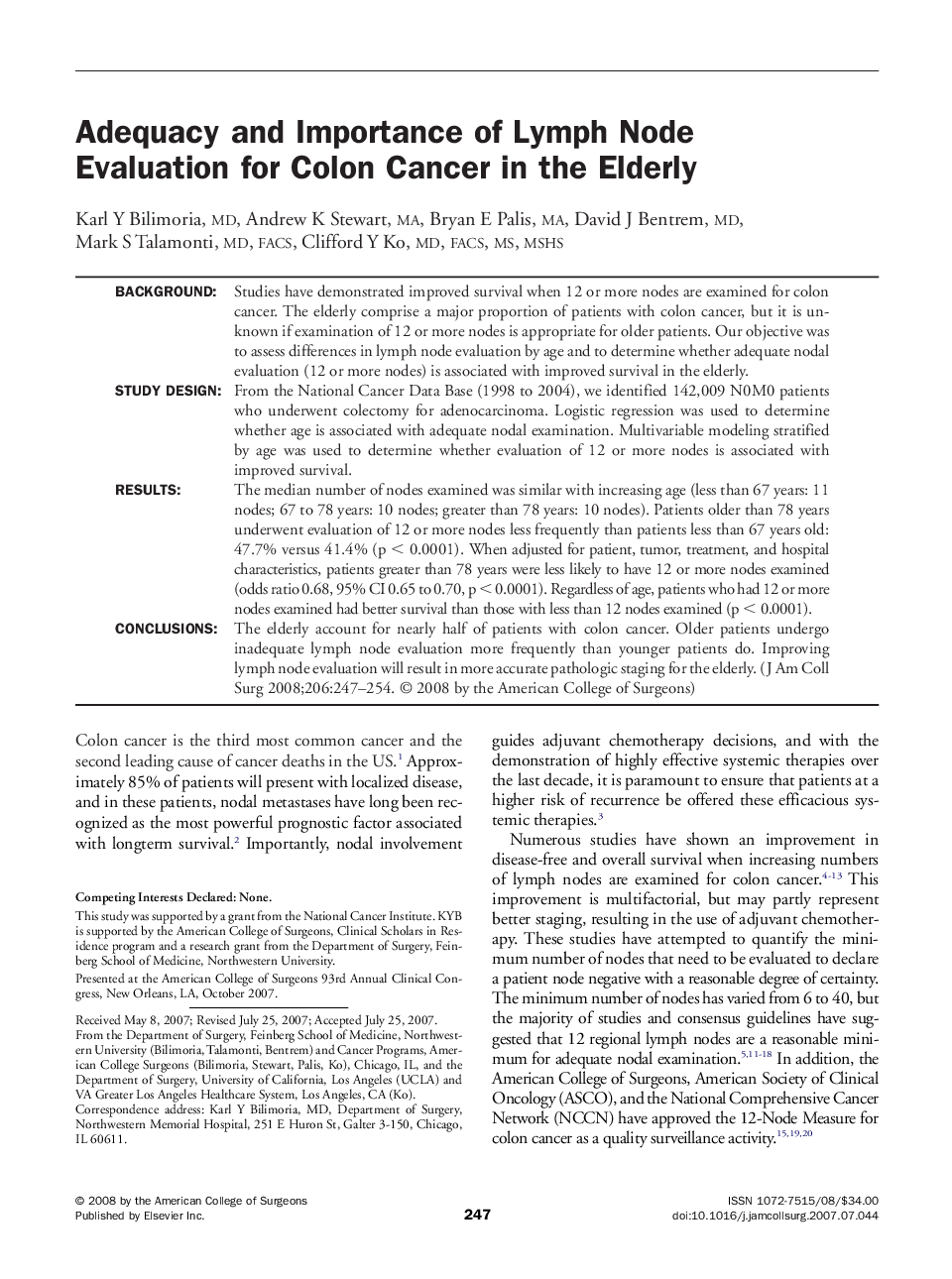| Article ID | Journal | Published Year | Pages | File Type |
|---|---|---|---|---|
| 4295245 | Journal of the American College of Surgeons | 2008 | 8 Pages |
BackgroundStudies have demonstrated improved survival when 12 or more nodes are examined for colon cancer. The elderly comprise a major proportion of patients with colon cancer, but it is unknown if examination of 12 or more nodes is appropriate for older patients. Our objective was to assess differences in lymph node evaluation by age and to determine whether adequate nodal evaluation (12 or more nodes) is associated with improved survival in the elderly.Study DesignFrom the National Cancer Data Base (1998 to 2004), we identified 142,009 N0M0 patients who underwent colectomy for adenocarcinoma. Logistic regression was used to determine whether age is associated with adequate nodal examination. Multivariable modeling stratified by age was used to determine whether evaluation of 12 or more nodes is associated with improved survival.ResultsThe median number of nodes examined was similar with increasing age (less than 67 years: 11 nodes; 67 to 78 years: 10 nodes; greater than 78 years: 10 nodes). Patients older than 78 years underwent evaluation of 12 or more nodes less frequently than patients less than 67 years old: 47.7% versus 41.4% (p < 0.0001). When adjusted for patient, tumor, treatment, and hospital characteristics, patients greater than 78 years were less likely to have 12 or more nodes examined (odds ratio 0.68, 95% CI 0.65 to 0.70, p < 0.0001). Regardless of age, patients who had 12 or more nodes examined had better survival than those with less than 12 nodes examined (p < 0.0001).ConclusionsThe elderly account for nearly half of patients with colon cancer. Older patients undergo inadequate lymph node evaluation more frequently than younger patients do. Improving lymph node evaluation will result in more accurate pathologic staging for the elderly.
